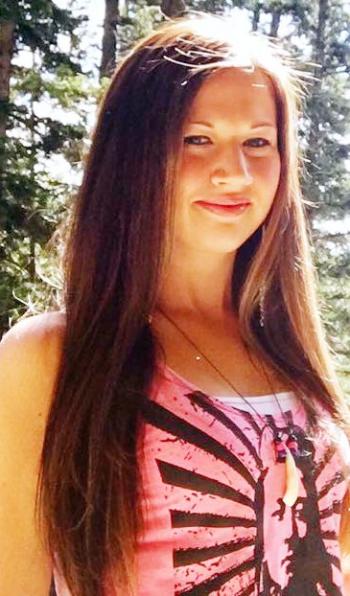Image Caption
Summary
By Andrea Smith
Windspeaker.com
Red Crow Community College will host a brand new Master of Arts in Education program this summer.
The program is called Poo’miikapii: Niitsitapii Approaches to Wellness. Niitsitapii is the traditional word for Blackfoot. It translates to “a person of truth” and the program will share traditional Blackfoot perspectives on health and wellness.
Dr. Karlee Fellner, a University of Calgary professor in Counselling Psychology, created the program, along with a team of Blackfoot Elders.
“The way it works is if the students do all four courses, they get a master’s certificate. If you do two four-course topics, they give you a Master’s diploma. And then you can do a thesis and get a full Master’s. So it can be part of a Master’s program, or you can just do this course topic,” said Fellner, who is excited to see the first round of the program launch in July.
She is hoping it will run again and expand into other First Nations territories thereafter.
“A bachelor’s degree is a technical requirement for the program, but students who don’t have any undergraduate education can apply and make a case based on work experience,” she added.
Fellner is Métis, with Cree heritage in her background. She chose to help create a course based on Blackfoot culture because she is currently working in Blackfoot territory. And by chance, after coming up with the idea for the program, she approached just the right person to make everything fall into place.
“I approached Roy Weasel Fat because I knew he was an Elder of the Blood Tribe… He was immediately interested and said this could really benefit our community … I had no idea he was the president of Red Crow at the time,” she said.
Since then, Weasel Fat, and Elders Andy Blackwater, Dr. Betty Bastien, Pete Standing Alone, Bruce Wolf Child, Sophie Tail Feathers, Evelyn Striped Wolf, and Calvin Williams, have been helping Fellner along in the process.
She gives them most of the credit for creating the program, because they’ve been the main advisors on exactly what traditional knowledge should be shared through it.
Fellner insists her own role has been more of a go-between for the Elders and the University of Calgary, creating a bridge between tradition and academics.
“It was really important to me that this program be centered in their community. I asked them stuff like who they wanted the students to be… While they said they wanted many of their own people, they also wanted the program to be open to students from outside their community, including non-Indigenous students,” said Fellner.
“Andy Black Water said ‘I feel it needs to be opened to everyone because they’ve shared enough of their culture with us, it’s time for us to share our culture with them,’” she said.
According to Fellner, the program is designed to meet some of the Truth and Reconciliation Commission’s Calls to Action put forward by the Truth and Reconciliation Commission. She believes it specifically addresses the following three:
- #22) Recognizing the value of Indigenous healing practices and implementing them in collaboration with Elders and healers;
- #23) Increasing Indigenous health professionals and providing cultural competency training for professionals working with Indigenous peoples; and
- #24) Providing an Indigenous health course in a post-secondary health program.
And because the ultimate goal for the program is to aid health service providers in creating their own community-based programs, it also pushes forward the agenda of Call to Action #21) The call for the creation of Indigenous healing centers that address the spiritual, mental, emotional, and physical harms related to colonization.
Dr. Betty Bastien has been a professor in Social Work at the University of Calgary, as well as the University of Lethbridge, and has worked on a variety of community projects in this subject area. She will co-instruct the four courses with Fellner, acting as the lead instructor.
Bastien uses a special term to refer to First Nations Elders. She calls them “aawaahskataiksi,” which means “eminent scholars,” because she believes this describes their role as knowledge carriers more accurately. She is happy to see this knowledge—and the traditions that are part of that knowledge —becoming part of newer education streams like the Poo’miikapii program.
“We’ve been totally dependent on western knowledge and skills and it hasn’t really proven to be successful. In fact, it’s part of the colonization,” she said, adding that in the past 20 years she’s noticed a resurgence of Indigenous systems of knowledge.
“Through this brief history, we’ve come to understand that Indigenous knowledge is the most applicable for Indigenous peoples in terms of sustainability in their communities,” she said.
More information is available through the Werklund School of Education University of Calgary webpage: https://werklund.ucalgary.ca/gpe/poomiikapii-niitsitapii-approaches-to-wellness

